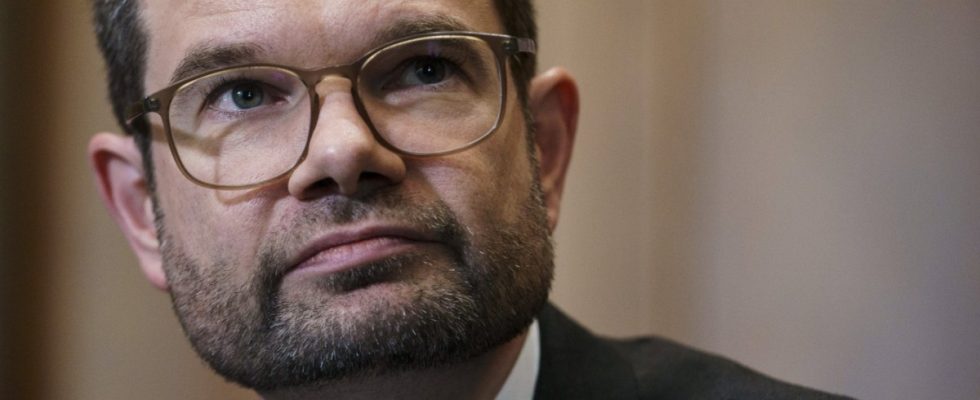The minister hesitated for months. Marco Buschmann (FDP) fears hardly anything as much as public storms of anger against his plans. But now the Federal Minister of Justice has introduced a law that allows for milder penalties than before for sending recordings of sexual violence against children. The distribution of so-called child pornography should no longer necessarily be considered a crime.
From Buschmann’s point of view, reducing the sentence in the area of pedocrimony is a long-overdue plan, but one that is not entirely easy to communicate. Which minister likes to be said to be lenient towards sex offenders? The title of his law, which has now gone to the departmental vote, is correspondingly unwieldy: “Draft of a law to adapt the minimum penalties of Section 184b paragraph 1 sentence 1 and paragraph 3 of the Criminal Code”.
Courts cannot stop child pornography cases
According to Section 184b of the Criminal Code, anyone who distributes recordings that show sexual acts on children under 14 or naked children’s bodies in provocative positions is currently punished with a prison sentence of between one and ten years. The commercial distribution of such representations is punishable by a prison sentence of not less than two years. Anyone who accesses such images risks between one and five years in prison.
A sentence of no less than one year means that courts cannot stop child pornography cases. There are no less severe cases. The fact that the legislature is demonstrating extreme severity here is due to former Federal Justice Minister Christine Lambrecht (SPD). After it became known that children had been raped and filmed in Lügde, North Rhine-Westphalia, for years, Lambrecht came under pressure – and responded in 2021 by tightening criminal law, which was already met with criticism back then.
From now on, any sending of child pornography images was considered a crime – with the result that there was an increase in cases in courts against people who clearly did not enjoy depictions of abuse. Teachers, for example, who had sent parents unacceptable pictures from the class chat. Or young people who forward such recordings out of “inexperience, curiosity, a sense of adventure or a desire to impress,” says Buschmann’s draft. He wants to partially reverse Lambrecht’s reform from 2021.
Public prosecutors would be relieved of nonsensical cases
The proportionality of the minimum prison sentence of one year is “particularly questionable if the accused person obviously did not act out of pedo-criminal motivation,” says the draft. This applies even more if someone wants to “stop” the further distribution of child pornography. In Baden-Württemberg, a young woman ended up in court after child pornographic material was automatically downloaded to her cell phone. According to Buschmann’s draft, the court was convinced that she had not deleted the recordings “only because of negligence.” The court considered at least a year’s imprisonment to be unconstitutional and a violation of the principle of guilt.
A senior detective sits in front of an evaluation computer during investigations into child pornography and sexual abuse.
(Photo: Arne Dedert/DPA)
Buschmann wants to allow courts to impose milder sentences again, including discontinuing proceedings. The penalty for purchasing or distributing child pornography images is to be reduced from the current minimum of twelve to six months, and for possession of such images to three months. Since such acts are considered misdemeanors, not crimes, investigative authorities could close proceedings if there is no criminal intent. Public prosecutors would also be relieved of nonsensical cases.
Now you can ask yourself whether pedo criminals also benefit from Buschmann’s reform by claiming that they only warned others by forwarding recordings. A new loophole for perpetrators? The Federal Ministry of Justice does not see this danger. Every criminal court is already checking whether the accused make protective claims or excuses. Nothing will change about that. In serious cases, i.e. the acquisition, distribution or possession of child pornography, a prison sentence of up to ten years remains.
The German Association of Judges called Buschmann’s plan overdue. “The tightening measures were introduced against the advice of all experts,” said Federal Managing Director Sven Rebehn. The supposedly good deed of enlightenment has become “a boomerang”. Only a reduction in the drastically increased minimum sentences would enable “a differentiated response from the judiciary in individual cases that is appropriate to the crime and guilt.” The German Lawyers’ Association also expressed relief.

